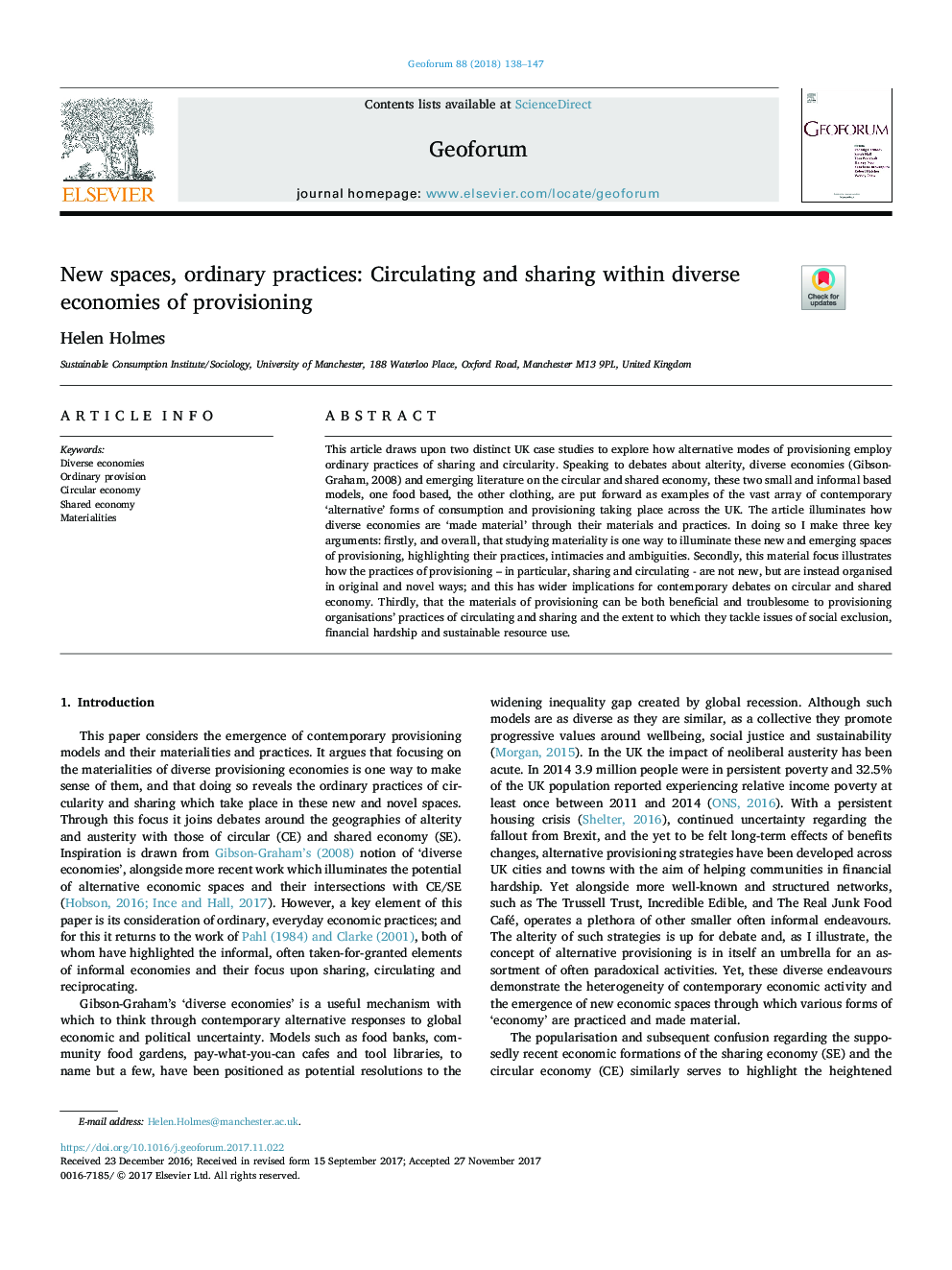| Article ID | Journal | Published Year | Pages | File Type |
|---|---|---|---|---|
| 7353929 | Geoforum | 2018 | 10 Pages |
Abstract
This article draws upon two distinct UK case studies to explore how alternative modes of provisioning employ ordinary practices of sharing and circularity. Speaking to debates about alterity, diverse economies (Gibson-Graham, 2008) and emerging literature on the circular and shared economy, these two small and informal based models, one food based, the other clothing, are put forward as examples of the vast array of contemporary 'alternative' forms of consumption and provisioning taking place across the UK. The article illuminates how diverse economies are 'made material' through their materials and practices. In doing so I make three key arguments: firstly, and overall, that studying materiality is one way to illuminate these new and emerging spaces of provisioning, highlighting their practices, intimacies and ambiguities. Secondly, this material focus illustrates how the practices of provisioning - in particular, sharing and circulating - are not new, but are instead organised in original and novel ways; and this has wider implications for contemporary debates on circular and shared economy. Thirdly, that the materials of provisioning can be both beneficial and troublesome to provisioning organisations' practices of circulating and sharing and the extent to which they tackle issues of social exclusion, financial hardship and sustainable resource use.
Keywords
Related Topics
Social Sciences and Humanities
Economics, Econometrics and Finance
Economics and Econometrics
Authors
Helen Holmes,
